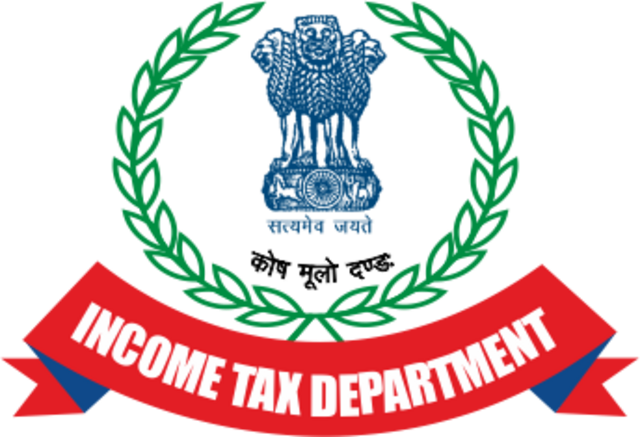Govt appoints four new CBDT members

Union Government Appoints Four New Members to CBDT: Fresh Leadership for India’s Top Tax Body
The Union government has infused fresh energy into India’s direct tax administration by appointing four new members to the Central Board of Direct Taxes (CBDT). An official order dated April 17, 2025, confirmed that the Appointments Committee of the Cabinet (ACC), led by Prime Minister Narendra Modi, approved the appointments of four senior Indian Revenue Service (IRS) officers from the 1989 batch.
The newly appointed members—Pankaj Kumar Mishra, Sanjay Bahadur, L. Rajasekhar Reddy, and G. Aparna Rao—step in at a pivotal moment. India’s tax administration is undergoing a transformation, and the government is determined to maintain momentum on digitalization, transparency, and taxpayer-friendly reforms.
A Strategic Move Amid Economic Expansion
India’s expanding economy and evolving compliance needs require experienced hands at the helm of tax administration. As several senior officers retired recently, the CBDT needed a leadership boost. The government, therefore, acted promptly to fill the top vacancies.
These officers bring decades of field experience, strategic thinking, and proven records in policy development and enforcement. Consequently, their appointment is expected to bring renewed focus and faster execution of ongoing tax initiatives.
Profiles of the New Appointees
Pankaj Kumar Mishra
Mishra has built a solid reputation for his work in tax intelligence and high-net-worth individual assessments. His analytical skills and fairness have earned him respect within the department.
As a result, many believe he will take the lead in enhancing risk-based profiling and improving enforcement strategies. His ability to lead data-driven initiatives makes him a strong asset in the CBDT’s digital roadmap.
Sanjay Bahadur
Bahadur stands out for his expertise in international taxation and policy matters. He has previously represented India in several global tax forums and played a critical role in shaping transfer pricing guidelines.
Furthermore, Bahadur’s deep understanding of global tax frameworks such as BEPS and the OECD guidelines will help align India’s policies with international norms. His appointment underscores India’s focus on improving its global tax engagement.
L. Rajasekhar Reddy
Reddy brings a blend of operational efficiency and people-centric leadership. He has worked across regions and departments, handling both taxpayer services and central policy matters.
In addition, he has been instrumental in pushing digitization at field level. Many expect him to lead backend modernization efforts and reduce friction in taxpayer interactions.
G. Aparna Rao
Rao is among the most respected investigation officers in the department. She led high-profile tax probes, including complex corporate fraud investigations, and is known for her integrity and precision.
Moreover, Rao is expected to strengthen compliance monitoring and improve analytics-backed enforcement systems. Her promotion also highlights the increasing representation of women in senior tax leadership roles.
The Importance of CBDT in India’s Economic Framework
The Central Board of Direct Taxes serves as the top decision-making body for direct taxation. It formulates policies, oversees implementation, manages the Income Tax Department, and coordinates with global authorities on tax-related issues.
Therefore, the CBDT not only affects domestic tax administration but also influences how India presents itself to the global financial and investment community. It plays a vital role in balancing robust tax enforcement with ease of doing business.
Reform Momentum to Continue
In recent years, India’s tax system has seen sweeping changes. Faceless assessments, faster refund processes, and AI-driven case selections have already modernized tax administration.
With the new appointments, this reform momentum is expected to continue. The new members will likely collaborate closely with the Finance Minister and Revenue Secretary to craft policies that are efficient, inclusive, and tech-driven.
Additionally, they are expected to contribute to next year’s budget planning, shape litigation reduction strategies, and improve grievance redressal for taxpayers.
Public and Industry Response
Tax professionals and industry leaders have responded positively to the appointments. Many believe that this group brings the right balance of field experience and policymaking skills.
“Each officer has proven their capability in complex roles,” said Anjali Mehra, a chartered accountant based in Delhi. “This team can truly bridge the gap between old-style tax enforcement and modern, digital-first governance.”
Furthermore, their leadership is expected to instill greater trust among honest taxpayers and provide more clarity to businesses operating in India.
What’s Ahead for the New Team?
In the immediate term, the new members will focus on performance review, digital system updates, and pre-budget consultations. Meanwhile, they are also expected to accelerate work on improving tax compliance through behavioral nudges and data insights.
In the long run, their vision and execution will help widen the tax base, simplify tax laws, and reduce friction between tax authorities and citizens.
A Confident Step Forward
The Union government’s move reflects strategic foresight. By selecting leaders who bring expertise across key domains—compliance, tech, international policy, and taxpayer services—it has equipped CBDT to handle present challenges and future opportunities.
As a result, the CBDT now enters a new phase: one where it must serve as both a guardian of revenue and a champion of reform.






